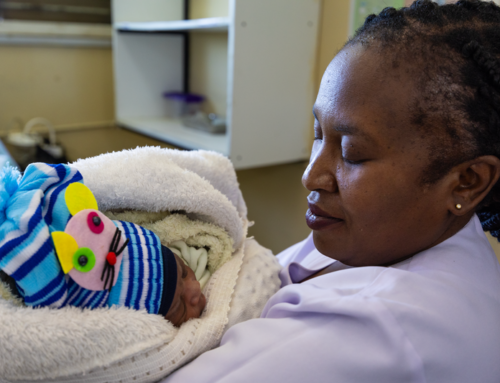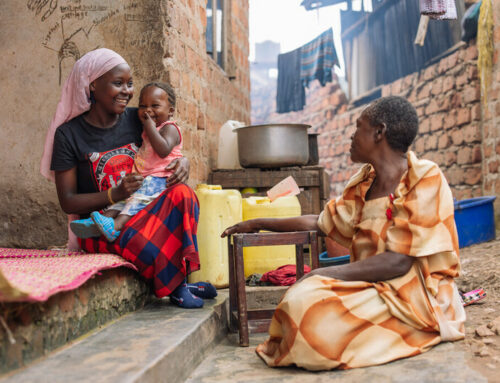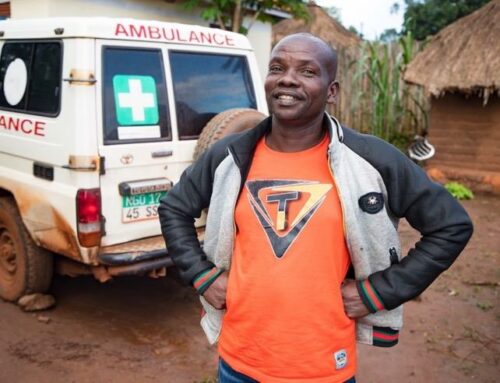Keeping whole communities healthy with dedicated CHWs
Globally, 400 million people lack access to primary health care. In rural communities throughout Africa, long distances from health facilities and mistrust of the formal health system contribute to why people don’t receive health services. Community Health Workers (CHW) can bridge the gap between their communities and formal health systems by bringing health care closer to where people live and work. We train CHWs to educate their community on how to prevent diseases and stay healthy and can provide basic health services. They ensure that everyone has access to quality and affordable primary health care.
Meet Ann, a CHW in southern Kenya. Her community unanimously chose her for this important work. Ann says, “I love this job because this way I can give back to my own community.
Ann provides her community with important health education: “Every day I talk to my community about staying healthy. For example, about the importance of hand washing and drinking clean water. This is so important in preventing people from getting ill, because each year diarrhea kills over half a million children under five.”
Ann introduces us to Karen, a community member Ann has been looking after. Karen is pregnant with her second child. Karen tells us how Ann has helped her through her pregnancy: “I’m so happy with my ‘village doctor’ Ann. She has taught me so many good things. For example, that I need to attend the clinic every month to make sure that I can deliver a healthy baby. She has also enrolled me with the NHIF Mama Card (national health insurance), so I can get free health care at the clinic during my pregnancy and delivery.” We’re happy to report that Karen gave birth to a healthy boy in March this year.
Ann also introduced us to another community member under her care: a young boy who previously suffered from malnutrition. Ann says, “This boy was so ill that he could not walk anymore so the community called me in. I took him to the clinic where they diagnosed him with acute malnourishment. I monitor him closely and advise his grandmother on what he should eat. I’m so happy to see that he is improving so fast. Hopefully he can go back to school soon.”




